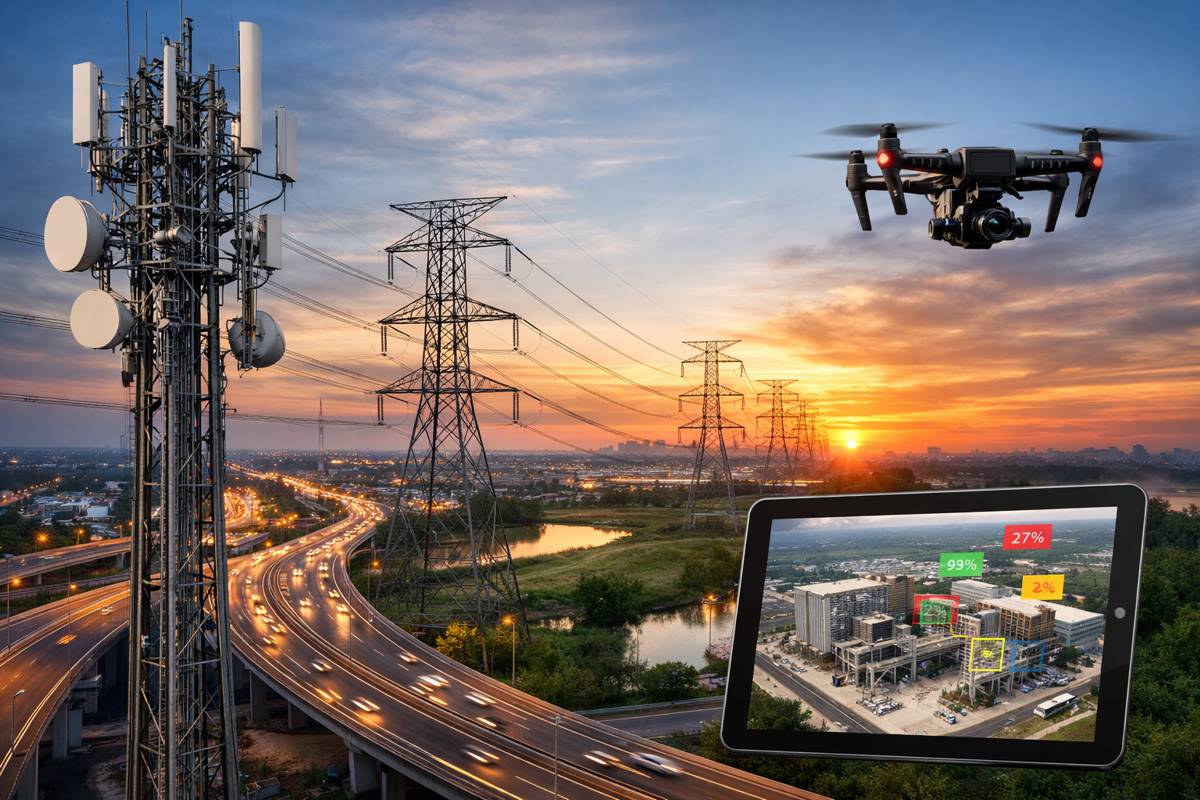Mendix app speeds up Parking Registration for 2.5m visitors to Rotterdam
Mendix, a Siemens business and the global leader in enterprise low-code, today announced that the Municipality of Rotterdam has built the first native mobile app to enable its residents to easily register the license plates of the cars of people who come to visit.
Altogether, 80,000 residents of Rotterdam have a license for visitor parking, and register 2.5 million cars per year. The interactive, native mobile app made with Mendix will make a huge difference in their user experience, as it provides great ease of use with biometric authentication, fast response without latency and offline functionality.
Residents of Rotterdam who live in an area with paid parking can benefit from a reduced fee for their visitors. Because Rotterdam uses scan cars for parking enforcement, the residents need to register the license plates of their visitors. Before turning to Mendix, the municipality cooperated with Parkmobile, a Benelux provider of a parking app where residents could register visitors through an app, email and phone. However, since Parkmobile discontinued the service the Municipality of Rotterdam needed a new solution.
App needs to provide user-friendly authentication
“We started mapping out our wants and needs for a mobile application where residents can register their visitors,” says Rob Poll, product manager at the Municipality of Rotterdam. “The app needed to offer user-friendly authentication and be downloadable from the Apple App Store and Google Play Store. With our former solution, we saw that some people still used text messages or made a phone call to register their visitors. This doesn’t live up to the technical and end-user standards anymore. Our new solution should be attractive to use for this crowd as well. Also, the app should be rock solid and offer continuous high performance. Every outage will harm the user experience and lead to questions for our customer support team, two elements we want to prevent.
“Furthermore, it was essential that the app could communicate with the system that contains all 80,000 parking contracts of our residents. Everyone with this contract has the right to 500 hours of reduced fee parking for visitors. We wanted the new app to provide its users real-time insight into how many credits they have left.”
As the city already had extensive experience with the Mendix low-code platform, Poll’s colleagues from the Rapid Application Development (RAD) team stepped up to create the app. Together with the help of Mendix partner Mansystems, they developed Rotterdam Bezoekersparkeren (RBP). The RAD team worked in sprints, which made it an easy and flexible process. Poll explains, “As a product owner, I was able to prioritise easily and saw that the feedback we provided was implemented very fast. I experienced that working with an internal team on the development of the application is far more efficient than trying to fine-tune an existing solution from a supplier to the needs of the organisation.”
The RBP app was launched in June and Poll saw that already 97 percent of the users installed the app within a month. And when Mendix was the first to add native mobile development to its platform, Poll and his colleagues didn’t hesitate and decided to take it one step further and make RBP native-mobile.
Hybrid app converted to native mobile in six weeks
Rotterdam collaborated with JAM-IT, a Ridderkerk-based Mendix partner, to rebuild the visitor parking app as native-mobile. “By using an agile way of working, we could move very fast,” says Armando Jacobus, Mendix developer at JAM-IT. “The team was able to convert the hybrid RBP app to native mobile within six weeks. It was the first time anyone created a true native-mobile app with Mendix, and we’re impressed by the result. The interaction is very fast. There’s no latency. And a big advantage for the users is that the app works offline as well. If there’s no mobile reception, the resident can still register their visitor’s car. When the connection is restored, the app automatically connects with the server and the information is updated.”
Mendix 8 is the first low-code platform to introduce comprehensive support for building true native mobile apps. Utilising the industry-leading React Native framework, Mendix streamlines the development process of creating mobile apps by enabling collaboration between citizen developers and IT professionals via low-code’s drag-and-drop functionality and a full set of widgets and actions.
Native mobile by Mendix makes RBP solid, fast and smooth
“With native mobile, Mendix and JAM-IT have provided us with an app that is more solid, faster, and smoother than ever,” Poll says. “Because the app doesn’t render inside a web view and communicates directly with the database, our users can benefit from excellent performance, smooth animations and natural interaction. Also, residents can store their favourite license plates in the app, so the app doesn’t have to go to the backend every time a visitor is registered. We also love the fact we can offer biometric authentication. With the full native mobile version of RBP that will be launched in the third quarter of this year, we can provide a richer user experience for our residents. For the future, I also expect us to better meet the needs of our residents as the app stores make it easy to provide feedback about the app. Mendix enables us to do what we’re here for: to listen to our residents and make their parking experience better.”
“We are constantly seeking ways to accelerate innovation,” Jacobus states. “Normally, one does not expect municipalities to be precursors or early adopters. But Rotterdam is very energetic. Working with them is like getting on a fast train. We see processes that take months or years being transformed within weeks and days. They always want to push the boundaries of what’s possible. This has made them leaders in leveraging the capabilities of the Mendix low-code platform to make a difference in the daily lives of their inhabitants.”




















